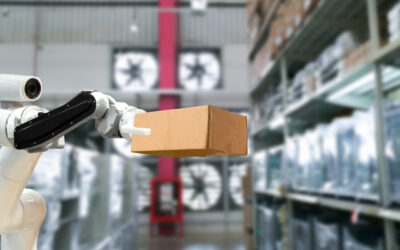Sustainability has become a critical focus for businesses across industries, including logistics. As consumers demand environmentally responsible practices, logistics providers must adopt sustainable strategies to remain competitive. This article explores the role of sustainability in modern logistics and strategies for implementation.
Importance of Sustainability in Logistics
- Regulatory Compliance
Governments worldwide are implementing stricter regulations regarding emissions and environmental impact. Logistics companies must comply with these regulations to avoid penalties and maintain operational licenses.
Example: Companies that proactively adopt sustainable practices are better positioned to meet evolving regulatory requirements. - Consumer Demand
Today’s consumers are increasingly concerned about the environmental impact of their purchases. Businesses that demonstrate a commitment to sustainability can enhance brand loyalty and attract environmentally conscious customers.
Case Study: A logistics provider that implemented eco-friendly practices saw a significant increase in customer retention and new customer acquisition. - Cost Savings
Sustainable logistics practices can lead to cost savings by reducing waste, optimizing resource use, and improving operational efficiency. Companies that invest in sustainability often realize long-term financial benefits.
Strategy: Conduct a sustainability audit to identify areas for improvement and potential cost savings.
Sustainable Practices in Logistics
- Green Transportation
Implementing alternative fuel vehicles and optimizing transportation routes can significantly reduce emissions. Logistics providers should explore electric or hybrid vehicles and invest in fleet optimization technologies.
Implementation: Use route optimization software to minimize fuel consumption and emissions during transport. - Warehouse Efficiency
Enhancing energy efficiency in warehouses can contribute to sustainability goals. Strategies include using energy-efficient lighting, implementing smart HVAC systems, and optimizing warehouse layouts to reduce energy consumption.
Example: A warehouse that transitioned to LED lighting reduced energy costs by 30%. - Sustainable Packaging
Utilizing recyclable or biodegradable packaging materials reduces waste and appeals to environmentally conscious consumers. Companies should evaluate their packaging suppliers and adopt sustainable materials where possible.
Strategy: Conduct a packaging audit to identify opportunities for using more sustainable materials.
Challenges in Implementing Sustainable Practices
- Initial Investment Costs
Implementing sustainable practices often requires significant upfront investment, which can be a barrier for some companies. However, the long-term benefits often outweigh these initial costs.
Solution: Create a business case that highlights the long-term savings associated with sustainable investments. - Supply Chain Complexity
Managing a sustainable supply chain can be complex, as it requires collaboration with various stakeholders. Companies must engage suppliers and partners in sustainability initiatives.
Implementation: Establish sustainability criteria for supplier selection and regularly evaluate their performance against these criteria. - Balancing Efficiency and Sustainability
Logistics providers must balance the need for operational efficiency with sustainability goals. Striking this balance can be challenging, as some sustainable practices may initially seem less efficient.
Strategy: Continuously assess and optimize processes to find solutions that enhance both efficiency and sustainability.
Best Practices for Sustainability in Logistics
- Set Clear Sustainability Goals
Establishing clear sustainability goals allows organizations to track progress and drive accountability. These goals should align with overall business objectives.
Example: A logistics company sets a goal to reduce emissions by 20% over the next five years. - Engage Employees
Employee engagement is critical for successful sustainability initiatives. Educating staff about the importance of sustainability and involving them in initiatives can drive commitment and innovation.
Implementation: Develop sustainability training programs that empower employees to contribute to sustainable practices. - Monitor and Report Progress
Regularly monitoring sustainability initiatives and reporting progress to stakeholders is essential for transparency and accountability. Companies should publish sustainability reports that highlight their achievements and areas for improvement.
Example: A logistics provider that shares its sustainability progress with customers enhances its reputation and builds trust.
Conclusion
Sustainability is no longer a choice but a necessity in modern logistics. By adopting sustainable practices, engaging employees, and monitoring progress, logistics providers can enhance their competitiveness while contributing to a healthier planet.








